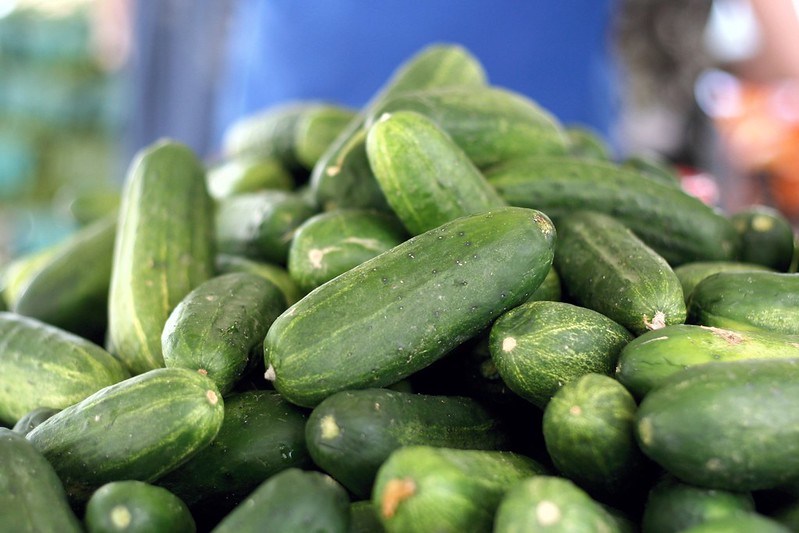
A multistate Salmonella outbreak linked to cucumbers has now sickened at least 449 people in 31 states and the District of Columbia, according to an update yesterday from the Centers for Disease Control and Prevention (CDC), and untreated canal water may have played a role.
The outbreak, with illness-onset dates ranging from March 11 to June 4, involves two Salmonella strains—Africana and Braederup. Of the 449 case-patients, 234 have been infected with Salmonella Africana and 215 with the newly added Salmonella Braederup strain. To date, 125 people have been hospitalized, but no deaths have been reported.
The two outbreak strains were initially being investigated separately, but the CDC and the Food and Drug Administration (FDA) combined the investigations when it became clear that they shared several similarities, including the demographics of the ill people and the food they reported eating prior to their illnesses.
Florida grower identified as one source of outbreak
Epidemiologic, trace-back, and laboratory data have identified cucumbers as the source of the outbreaks. Of the 188 people interviewed by state and local public health officials, 129 (69%) reported eating cucumbers in the week before getting ill. A trace-back investigation by the Food and Drug Administration (FDA) identified Bedner Growers, Inc., in Florida as a supplier of some of the cucumbers involved in the outbreak.
Analysis of untreated canal water at the grower identified Salmonella Braederup, and whole-genome sequencing (WGS) determined that it was the same strain that has sickened people. Cucumbers from Bedner Growers are no longer in season and any sold previously are no longer on shelves.
While most people infected with Salmonella recover within a week without treatment, more severe cases may require antibiotics. WGS analysis of bacteria from 214 case-patients found no predicted antibiotic resistance, while bacteria from 235 people predicted resistance to one or more of the following antibiotics: amoxicillin-clavulanic acid, ampicillin, azithromycin, cefotoxin, ceftiofur, ceftriaxone, ciprofloxacin, fosfomycin, and tetracycline.
The CDC says the number of sick people in the outbreak is likely much higher than the number reported, and that the outbreak may not be limited to the states with known illnesses.









